
Simulated Interview
Today is a pivotal moment in my path toward a career in videography, a simulated interview conducted by my classmates. I have previously boasted that I have a 100% success rate when interviewing for jobs (5 interviews and 5 part-time jobs secured). Usually with interviews I rely on my charm and some well-timed jokes. However, today I felt a little different. This wasn’t just some part-time job that I didn’t really care about. This was a chance to practice my interview skills for my ideal job, and today I wanted to take this seriously. Suddenly, I felt nervous. Nervous! I’d never felt nervous for an interview before. This must be different from the easygoing and laid-back interviews I was used to. This one mattered!
“It is not sufficient simply to have an experience to learn. Without reflecting upon this experience, it may quickly be forgotten, or its learning potential lost.“
(Gibbs,1988)
In this post, I will be using Gibbs’s reflective model to reflect and look back on my experience of the simulated interview. Melanie Jasper believes that Gibbs’s reflective cycle is best for “individual learning” and this is why I chose to use Gibbs’s model of reflection alongside my own views that it was best suited to breaking down and decompartmentalising the experience of last week’s interview. (p.61)
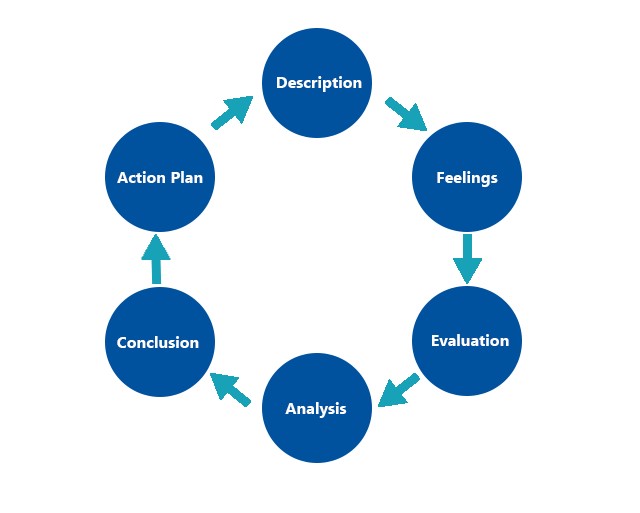
Job Role
For my interview, I scanned through the various job search sites, your typical Indeed, LinkedIn, and even the QUB work page. Finally, I landed on a Junior Videographer position in Bath for a marketing company, called Social Shepherd. Being somewhat interested in moving abroad once I, fingers crossed, graduate in late June of this year, the position intrigued me. Having completed my work experience as a junior videographer for a marketing company here in Belfast, this position was the perfect fit as the base of my simulated interview. I sent the link for the position to my classmates… and so it began.
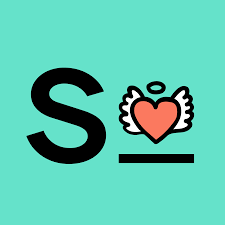
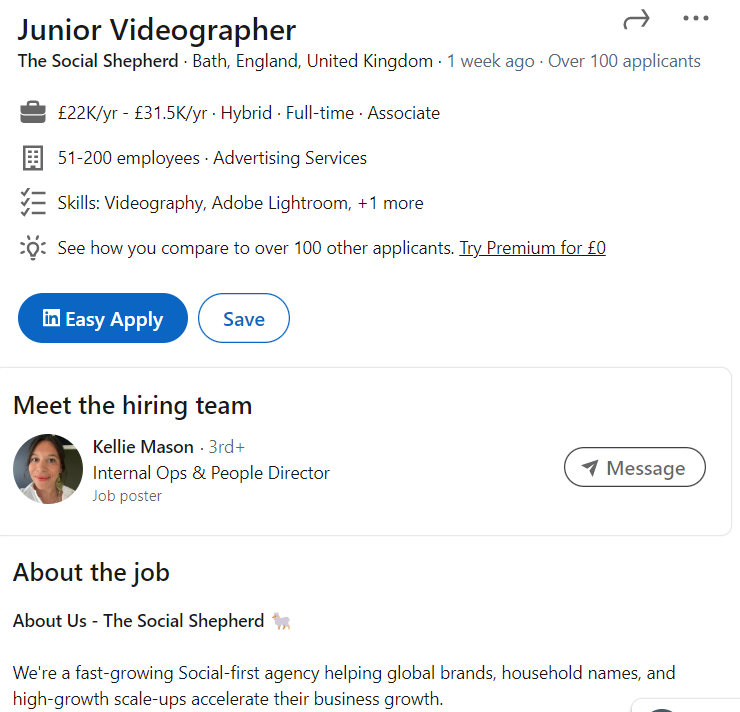
How to Ace an Interview
“An interview is a performance to some degree. You’re starring as yourself”
(skillings, linkedin learning blog, Accessed 12/03/24)
Before walking into my interview blind, like I used to do, I decided to research effective interviewing methods to improve my chances of having a good interview and to try to detangle myself from the web of nerves that had ensnared my stomach. Upon researching I stumbled on a LinkedIn guide on how to interview. This guide recommended 6 things that everyone should do in an interview:
| ‘#1 Plan your first impression‘ | I practiced my first impression, in the mirror of course |
| ‘#2 Sell your strengths‘ | I wrote a lovely list of my strengths and had a great time doing it |
| ‘#3 Prepare speaking points-not a script‘ | I prepared some information that I thought may come up during my interview |
| ‘#4 Show enthusiasm for the role‘ | I am a very enthusiastic person so this came naturally |
| ‘#5 Tell a good (short) story‘ | I discovered the S.T.A.R technique |
| ‘#6 End on a positive note‘ | Put my hands together and prayed that I would remember point 6 |
All this preparation was able to calm me down somewhat the night before. I felt a lot more prepared and even slightly confident, a confidence that doesn’t last long I assure you. Now you might be wondering what the S.T.A.R technique means that I had mentioned when I was researching for the 5th point. The S.T.A.R. technique is a widely used method for answering behavioural interview questions. The acronym stands for Situation, Task, Action, and Result. By concentrating on instances from prior experiences, this strategy aids you, as the candidate, in structuring your answers in an organised and straightforward manner.
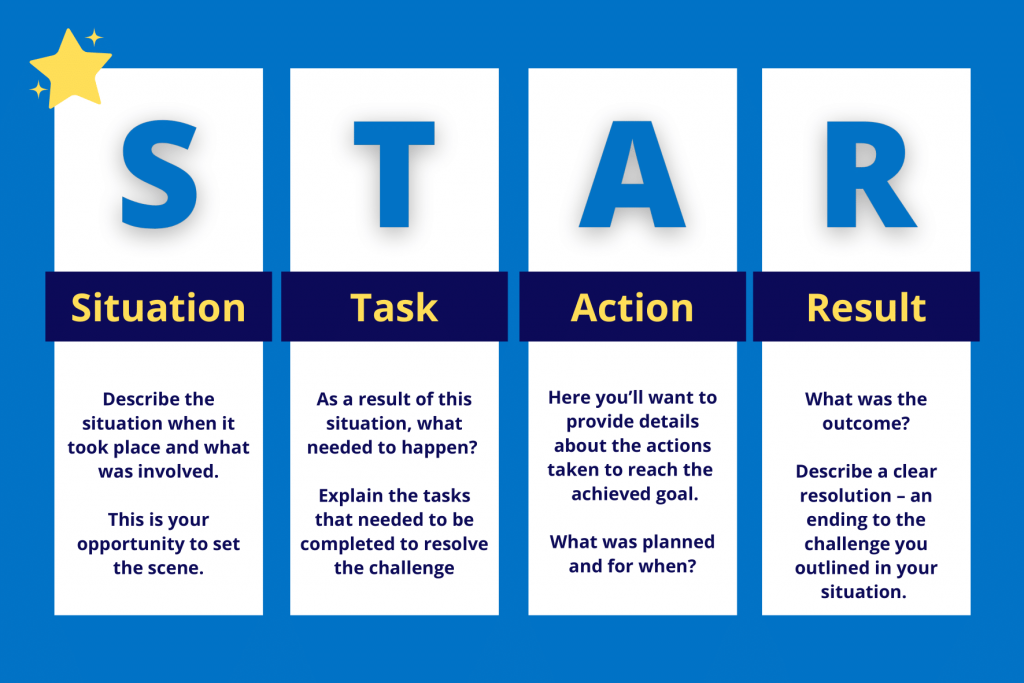
One of the stories I prepared was to answer a question based on any relative work experience that I had gained in a Junior Videographer role. So, for this story, I used an example of my time working for Lighthouse Communications for my placement module at university. I broke the story into each individual section of the acronym S.T.A.R:
Situation: It was my first day starting my placement at Lighthouse Communications and I was very nervous. I wanted to immediately impress my boss and co-workers, but also prove that a student, such as myself, could create and deliver high-quality work.
Task: One of my first tasks working at Lighthouse Communications consisted of editing together an Instagram reel for Belfast City Airport. As it was my first day at Lighthouse I wanted to impress the senior videographer and deliver a high-quality video that would fit the needs of the client.
Action: The problem with this was that the senior videographer wanted the video edited using the Premiere Pro editing software. At this time, I was not familiar with this software so I was left with a dilemma. Opting to fix the problem myself I became versed in the software quickly learning the basics so that I could deliver what was asked of me.
Result: In the end, I was able to deliver a package that was good enough for my first day and was still able to impress the senior videographer. Looking back now I have seen the chain effect that this has had in my learning experience as I am now fully versed in the editing package but I also have a basic understanding of other packages in case I ever needed to use them in my future line of work.
Reflection
Description
Walking in to face three of my classmates was a challenge, I had not factored this in when doing my pre-interview preparations. The awkward air seeped into my lungs as I took a deep breath and introduced myself to three people who had known me for over 2 years now. Shaking each of their hands I sat down and prepared myself for the upcoming questions. Having sent them the job on LinkedIn the job description also included the skills needed for the position and what I would do in the role. Shown below:
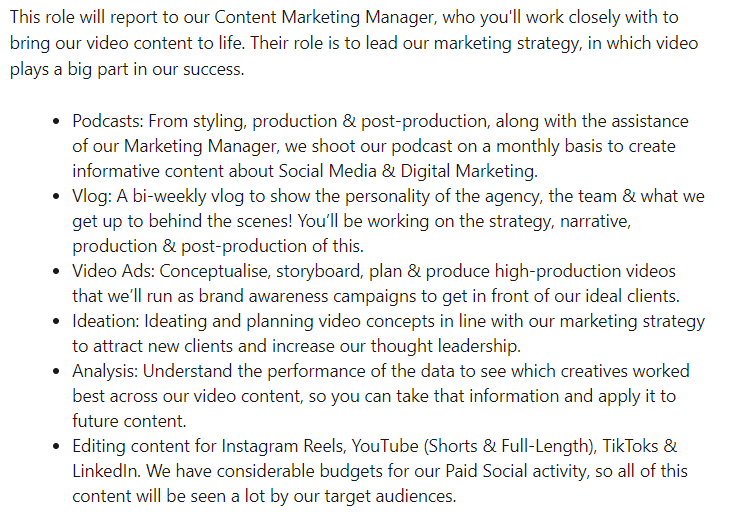
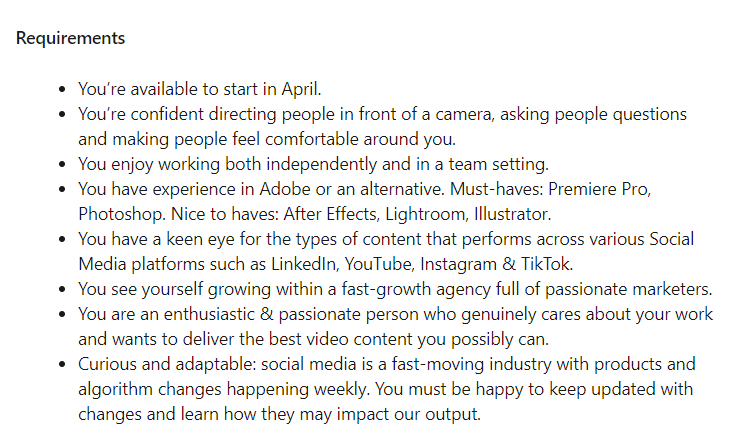
Using these my 3, smart and incredible interviewing, classmates based their questions on this. asking difficult questions. These thought-provoking questions prompted me to think deeply about my experiences and skills. Despite the complexity of the inquiries, I was able to respond convincingly and confidently, demonstrating my ability to think critically under pressure.
Feelings
As I had stated previously, I was walking into the interview quite nervous, and if I was nervous the night before it didn’t even compare to waiting outside the room. I was wiping my sweaty hands and couldn’t sit still as I waited, not so patiently, to be called in that morning. Sitting down and introducing myself I calmed myself down and allowed myself to relax slightly, telling myself that there is no reason to be nervous. After I answered the first question all my nerves just washed away, settling into the interview and allowing my personality and love for the job to shine.
Evaluation
Ah, the dreaded cringe of an evaluation. Having to look back and focus on what went wrong and what you can improve on. Except this time my classmates wrote it down, even worse! Now there was no hiding and especially no going easy on myself. I received this feedback:
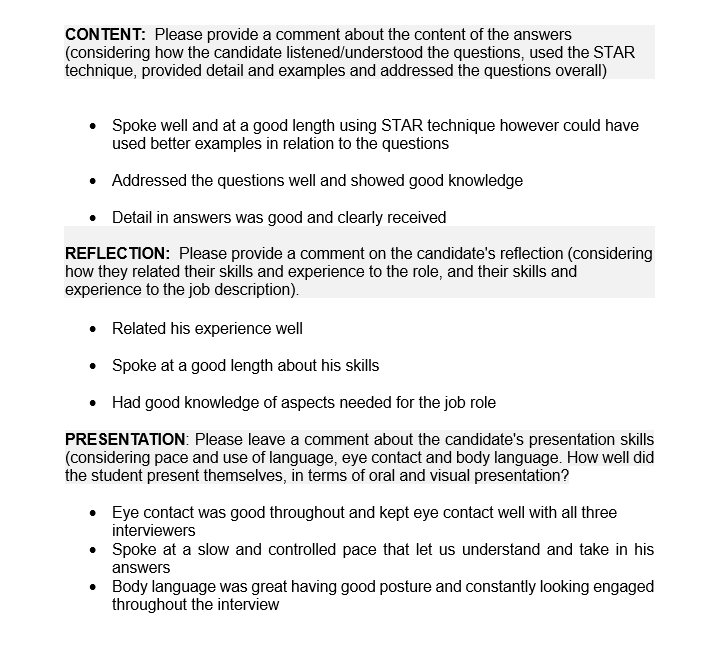
Based on my peer’s feedback I felt that I performed well during my interview and can look back on the experience positively. I was able to answer questions well and was found to be “clear and concise” during my interview. As for the only mentioned weakness surrounding my choice of story and experience I used when answering a specific question, this is something that I can work on and improve on in the future.
Analysis
In terms of analysing my interview, I felt that immediately the S.T.A.R technique was extremely useful in answering difficult and long-winded questions. I also now know where some of my strengths and weaknesses lie however I am very happy with the feedback I received in the last section, the presentation section. About an hour before my interview I realised how nervous I was and quickly researched some simple techniques on body language and using my body language to have a positive impact on my performance as, “Body language boils down to what you’re communicating without speaking.” (The Muse, Accessed 12/03/24)
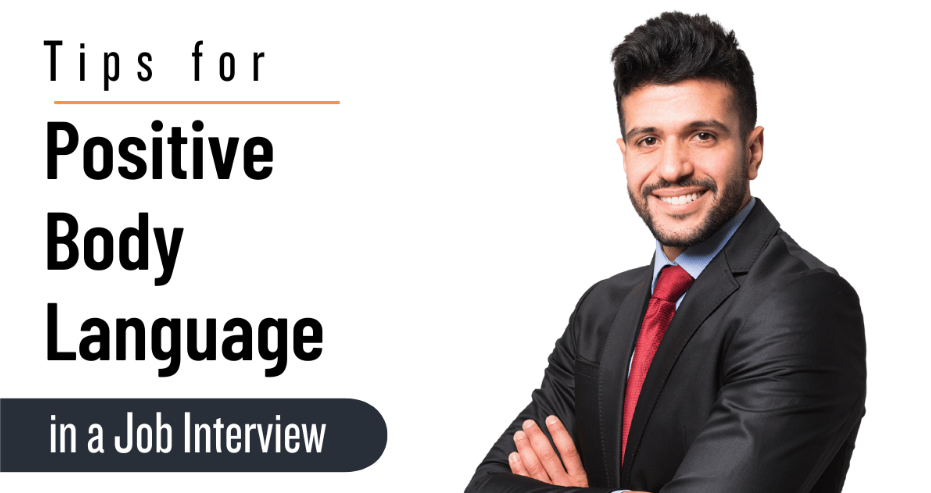
As good as it was discovering a new trait of mine it also stung that my poor choice of story let me down in my feedback. I had prepared some examples and stuck to them too much ignoring part of point three from my earlier research, “not a script”(Linkedin Learning Blog, accessed 12/03/24). As aggravating as this small silly mistake was it could mean the difference between gaining the job or not in the future. I was also relieved when they said that I spoke well as I took my time when answering the questions and even brought a water bottle with me. A trick I had learned while strolling through a Reddit post the night before. Taking a sip of water before answering difficult questions, thus giving me the time to construct an efficient and professional answer.
Conclusion & Action Plan
In the future, I would prepare better by researching the company more or by preparing better stories using the S.T.A.R method. To do this I may even ask my friends to routinely carry out interviews for me so that I can build up my confidence and experience in an interview environment, as Boud states “experience cannot be bypassed, it is the central consideration of all learning.”(Boud, p.8) This would be extremely beneficial and something that I urge all readers to do so that when the time comes you are well prepared and ready to maybe ace the interview of your life!
Works Cited
Boud, D. Cohen, R. and Walker, D. (1993) Using experience for learning. Buckingham: SRHE and Open University Press
Gibbs, Graham. (1988) Learning by Doing. Oxford Further Education Unit
Jasper, Melanie. et al. (2013) Professional development, reflection and decision-making in nursing and health care. 2nd ed. Chichester, West Sussex, U.K: Wiley-Blackwell.
“6 Interview Skills that Will Get You Hired”, Linkedin Learning Blog, Accessed 12/03/24) https://www.linkedin.com/business/learning/blog/job-seeking-tips/6-interview-skills-that-will-get-you-hired-2023
“8 Body Language Tips for Your Next Job Interview”, The Muse, Accessed 12/03/24. https://www.themuse.com/advice/interview-body-language-tips